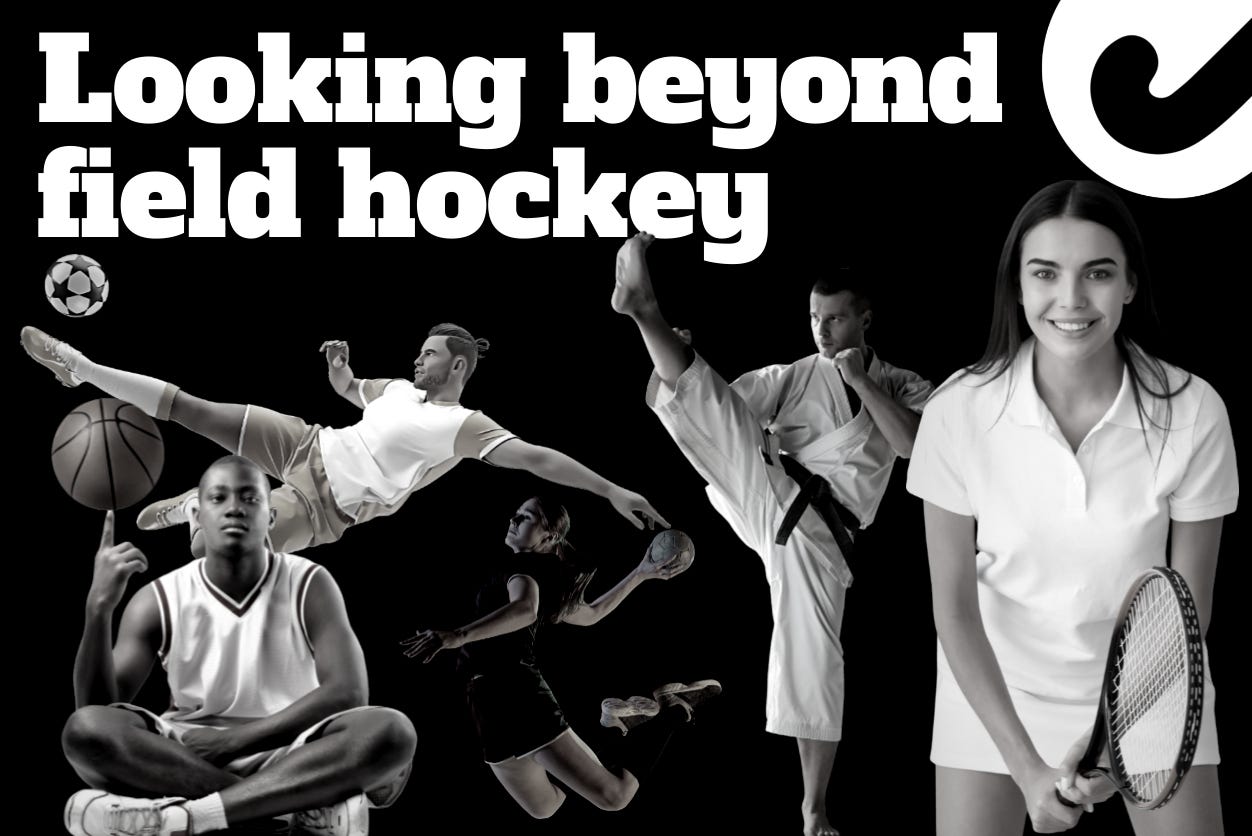Looking beyond field hockey
What Field Hockey Coaches Can Learn from the World of Sports
Field hockey, a dynamic and physically demanding sport, is constantly evolving. To truly elevate their athletes' performance and ensure long-term success, modern field hockey coaches must look beyond traditional boundaries and draw valuable insights from other athletic disciplines. By embracing a multidisciplinary approach, coaches can unlock new strategies for technical mastery, tactical brilliance, optimal physical conditioning, and robust mental resilience.
Let’s explore key lessons field hockey coaches can learn from the broader sporting landscape, categorized into four crucial areas:
Technical
Tactical
Physical
Mental
Mastering the Craft: Technical Lessons from Diverse Sports
While field hockey possesses unique technical skills, many underlying movement patterns and physical attributes are universal across sports. By observing how other disciplines develop these foundational elements, field hockey coaches can enrich their technical training.
One foundational principle is the emphasis on early diversification and broad fundamental movement skill development in youth sports. Instead of encouraging early specialization, promoting the sampling of multiple sports in younger years fosters a wider range of fundamental movement skills. This approach leads to developmental benefits, equipping athletes with versatile motor skills that are transferable across various sports, potentially reducing the risk of injuries and burnout. For field hockey coaches, this translates into encouraging multi-sport participation for youth players, building a comprehensive "movement vocabulary" that will ultimately enhance their agility, coordination, and stick-handling on the field.
The concept of a "sport family," where sports are grouped by shared characteristics, can inform talent development and transfer. While field hockey is not explicitly categorized in the provided sources, its dynamic nature means it shares commonalities with various other sports:
•
Agility, balance, and core stability, all crucial for navigating the field, changing direction quickly, and maintaining control during tackles and intricate stick work in field hockey, can be significantly enhanced by studying combat sports like judo, karate, and taekwondo. These disciplines inherently emphasize precise body control, rapid weight shifts, and the ability to adjust posture under pressure. The sources suggest that examining how skills like kicking are performed in sports such as Taekwondo can inspire coaches to diversify their own training sessions, promoting practice variation.
•
For refining ball control and manipulation, field hockey coaches can draw parallels from futsal, which is identified as a "donor sport" for soccer, facilitating the transfer of skills related to ball control and technique. Applying drills and methodologies from futsal, with its emphasis on tight space control and quick passes, can directly enhance a field hockey player's stick-to-ball connection, dribbling prowess, and passing accuracy.
•
When it comes to dynamic body control and spatial awareness, insights can be gleaned from artistic sports such as diving, gymnastics, and figure skating. These sports share similar profiles in terms of the importance of specific skills, including balance, body orientation in space, and precise execution of movements. Elements like maintaining posture during a strong hit, executing a spin while dribbling, or recovering balance after a tackle require similar competencies developed in these artistic disciplines.
The Art of the Game: Tactical Insights for Smart Play
Modern field hockey is a high-speed, decision-intensive game. Coaches can significantly sharpen their players' tactical acumen and "game intelligence" by adopting lessons from how other sports cultivate strategic thinking under pressure…





